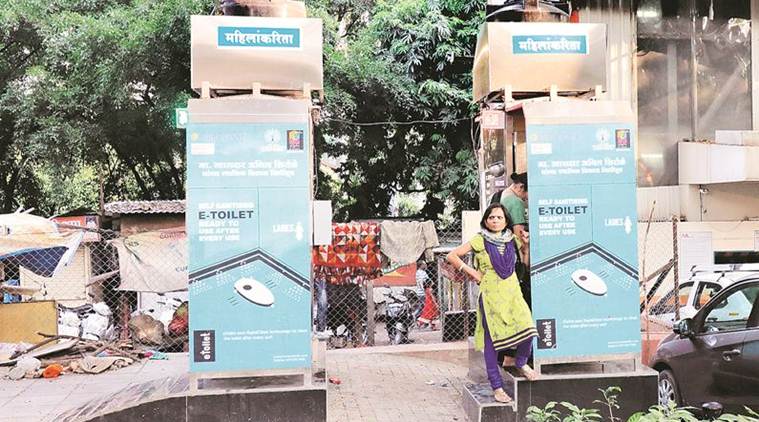 The responsibility of containing the virus in the 69 micro-containment zones has been given to the four officers, who will have to visit the zones in their charge regularly to ensure the effective implementation of the containment plan. (Representational)
The responsibility of containing the virus in the 69 micro-containment zones has been given to the four officers, who will have to visit the zones in their charge regularly to ensure the effective implementation of the containment plan. (Representational)
In the 69 ‘micro containment’ zones in the city that have seen the highest number of cases, the Pune Municipal Corporation (PMC) has identified community toilets, used by thousands of people, as main sources of the spread of novel coronavirus.
“It has been noticed that community toilets are one of the main sources of infection in micro-containment zones. The PMC had appointed caretakers for these toilets but the toilets continue to be in unhygienic condition,” said Saurabh Rao, former municipal commissioner and current Sugar Commissioner, who, along with three other bureaucrats, has been roped in to contain the spread of the virus in Pune.
The responsibility of containing the virus in the 69 micro-containment zones has been given to the four officers, who will have to visit the zones in their charge regularly to ensure the effective implementation of the containment plan.
“Two caretakers should be appointed to clean the toilets in shifts, and the sanitary inspector should monitor that. The cleaning should be done at least five times a day with sodium hypochlorite solution to disinfect it,” said Rao.
Only 3 per cent of areas under PMC are under the newly-declared 69 micro-containment zone, said Municipal commissioner Shekhar Gaikwad. “There was a need to create micro- containment zone as the pandemic may last for months or years, and the lockdown can’t be permanent…,” he said, explaining the decision behind easing restrictions in most parts of the city.
He said the infection had spread most in slum pockets, and work to contain the virus had to be focused on these areas. “We have been getting complaints from various places that community toilets are a major source of the infection. The PMC has started taking extra measures to clean them repeatedly,” said Gaikwad.